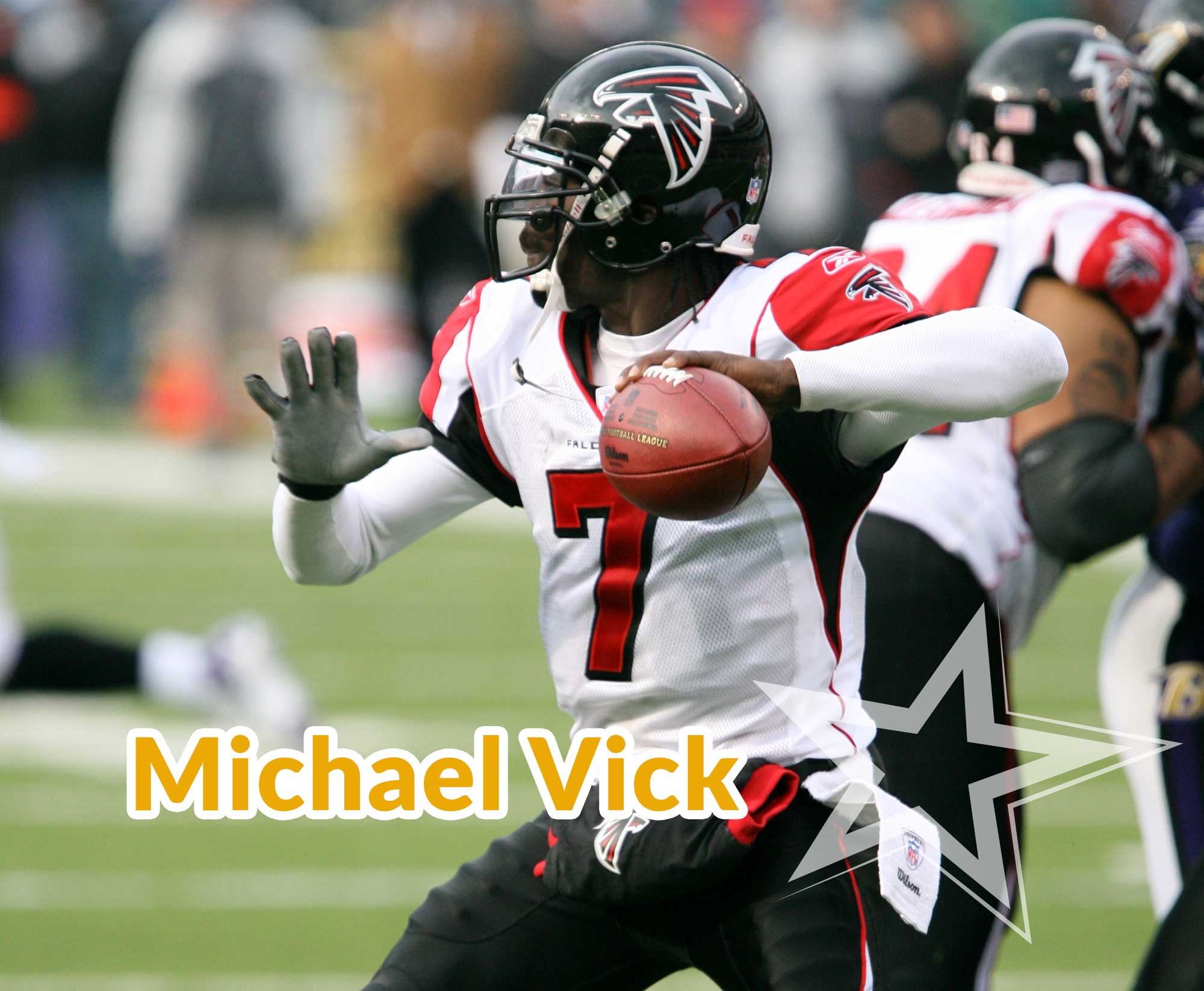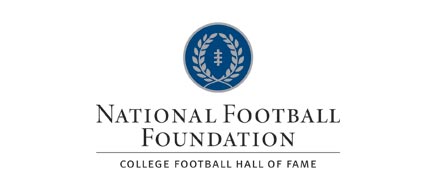LEGENDS 7
3:30PM | Hilton Naples

THURSDAY, MARCH 26, 2026
5111 Tamiami Trail N. Naples, FL 34103
Live Auction hosted by Rick LoCastro
MEET THE 2026 LEGENDS
Jim McMahon arrived at BYU in the fall of 1977 and finished his career in 1981 with an astonishing 70 NCAA football records. In his final two seasons as a Cougar, McMahon threw for 8,126 yards and 77 touchdowns. He led the nation in numerous offensive categories both years, including passing yards, total offense and touchdown passes. He was first-team All-America as a junior in 1980 and was a consensus choice as a senior in 1981.
At the conclusion of his senior season, McMahon won the inaugural Davey O’Brien National Quarterback Award and the Sammy Baugh Trophy. He was named NCAA Co-Offensive Player of the Year along with Marcus Allen of USC and finished third in the voting for the Heisman Trophy. From 1977-81 he was part of five-consecutive WAC championship teams (redshirted in 1979) and was a three-time All-WAC First Team quarterback in 1978, 1980 and 1981.
Following a historic career at BYU, McMahon was the fifth player selected in the first round of the 1982 NFL Draft — the highest Cougar ever taken. McMahon was drafted by the Bears and played seven seasons in Chicago, leading them to the Super Bowl title in 1986. He played 16 seasons in the NFL for seven teams and won two Super Bowl rings. McMahon was inducted into the College Football Hall of Fame in 1998.
McMahon has also been very active in civic service with the Jim McMahon Foundation, Children’s Miracle Network, Jim McMahon Ronald McDonald House Golf Tournament, Juvenile Diabetes Fund, American Cancer Society, Society for the Prevention of Blindness, Think First Foundation for Children and BYU Y-Quarterback Weekend. In 2006, McMahon traveled to Iraq with the USO Supporting Freedom program to visit American forces in the field.
The Buffalo Bills selected wide receiver Andre Reed in the fourth round of the 1985 NFL Draft (86th overall). The quick, durable playmaker from Kutztown University quickly rose up the depth chart and began one of the most dominant careers in pro football history.
In time, Reed would supplant Pro Bowl teammate Jerry Butler and 1985 second-round draft selection Chris Burkett as the Bills’ primary receiving threat, leading the team in both receptions (53) and touchdowns (seven) during his second season.
As the Bills ascended from a 2-14 team in Reed’s rookie year to contenders, the player nicknamed “YAC” for his proficiency in gaining yards after the catch would go on to start in five AFC Championship Games and four consecutive Super Bowls.
During the Bills’ 41-38 win over the Houston Oilers in the 1992 AFC Wild Card Game, Reed hauled in eight passes for 136 yards and three touchdowns to complete an NFL postseason-record 32-point comeback win. In Super Bowl XXVII versus the Dallas Cowboys, Reed caught eight passes for 152 yards — eclipsing Roger Craig (20) to become the Super Bowl’s all-time leader in career receptions, a record Jerry Rice later broke.
Reed and Hall of Fame teammate quarterback Jim Kelly formed a nearly unstoppable connection that resulted in 663 career completions — the most in NFL history at the time. Reed made many of those receptions over the middle, where hard-hitting linebackers and safeties lurked.
In his final game as a Buffalo Bill, Reed caught five passes to eclipse Art Monk (940) and move into second place in NFL history in career receptions. He remains the Bills’ all-time leader in receptions (941), receiving yards (13,095), touchdown receptions (86) and games played (221).
After playing his final season with the Washington Redskins in 2000, Reed retired with 1,036 receptions for 14,427 yards and 96 touchdowns (regular season and postseason combined).
During his 16-year NFL career, Reed was a named a two-time second-team All-Pro selection by the Associated Press (1989, 1990) and went to seven consecutive Pro Bowls (1988-1994). He ended his career as the AFC’s all-time leader in receptions (941) and receiving yards (13,095).
Born on June 26, 1980, in Newport News, Virginia, Michael Vick’s talent was evident from a young age. Growing up in a tough neighborhood, he was introduced to football early, showing off his natural athleticism and speed. His journey to stardom began at Virginia Tech, where he became one of the most dynamic quarterbacks in college football history.
At Virginia Tech, Vick played from 1999 to 2000, leading the team to a national championship game appearance in the 2000 Sugar Bowl. His combination of arm strength, speed, and elusive running made him a dual-threat quarterback that was unlike anything the college game had seen before. In just two seasons, Vick’s impact was enough to change how NFL teams viewed the quarterback position. He left college early and was selected by the Atlanta Falcons with the first overall pick in the 2001 NFL Draft.
Vick’s arrival in Atlanta signaled a new era for the Falcons. He was known for his thrilling ability to make plays with both his arm and his legs, using his rare blend of speed and power to escape defenders and create plays on the fly. In his first season, he quickly established himself as one of the most dangerous quarterbacks in the league. His signature moment came during a 2002 Monday Night Football game against the Minnesota Vikings, where he rushed for 173 yards—a record for a quarterback. Vick’s playmaking ability kept defenders on edge, as he could take off and run at any moment, turning ordinary plays into something spectacular.
As Vick’s career progressed, his skills continued to evolve. In 2004, he led the Falcons to the NFC Championship Game, cementing his place as one of the league’s premier quarterbacks. His arm strength and deep-ball accuracy began to improve, and he was voted to multiple Pro Bowls. However, despite his individual success, the Falcons struggled to break through in the playoffs, and his career began to take an unexpected turn.
In 2007, Vick’s life and career took a devastating hit when he became embroiled in a dogfighting scandal. The NFL suspended him indefinitely, and Vick pled guilty to federal charges related to his involvement in running a dogfighting ring. He was sentenced to 23 months in federal prison, an event that cost him his career for several years.
After serving time, Vick was reinstated to the NFL in 2009. He signed with the Philadelphia Eagles, where he experienced one of the most remarkable comebacks in sports history. Under coach Andy Reid, Vick regained his form, and in 2010, he had one of the best seasons of his career, earning NFL Comeback Player of the Year honors and leading the Eagles to the playoffs. He displayed a rejuvenated skill set, mixing his old-school speed with improved passing accuracy, and became one of the most dangerous quarterbacks in the league once again.
Vick spent a few more seasons with the Eagles and later had stints with the New York Jets and Pittsburgh Steelers, before retiring from the NFL in 2017.
In 2024, Michael was named the Head Football Coach at Norfolk State University. In 2025 Michael was inducted into the College Football Hall of Fame.
EVENT & TICKET DETAILS
Doors Open at 3:30 PM
Jim McMahon
Andre Reed
Michael Vick
General Admission Includes
- 90 minute Pre-Show with Appetizers, Cash Bar, Auction Items and Raffle
- Live Auction hosted by Rick LoCastro
- Engage with the Legends in a Q&A storytelling of their challenges and triumphs during their illustrious careers as professional NFL players and their post-career ending in an autograph session
VIP Admission Includes
- Everything from the General Admission
- Private one-on-one with the Legends, autographs, picture-taking and a private meet & greet
- Reserved premium seating inside the Ballroom
- Access to VIP poolside after party
EVENT TIMELINE
4:00PM | Exclusive Meet and Greet
5:00PM | Main Event Begins
7:00PM | VIP Poolside After Party
PARTICIPATING SPONSORS






























